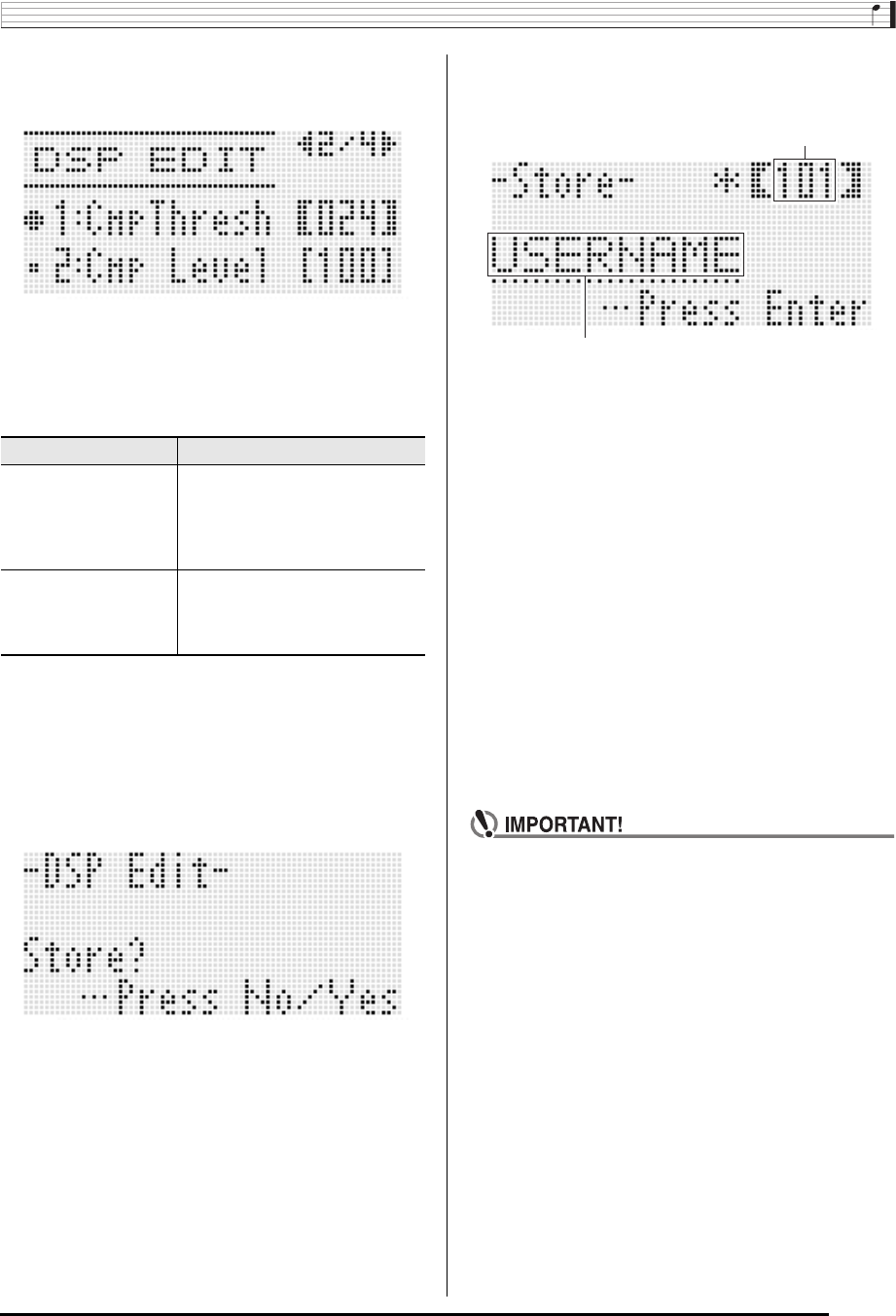
Applying Effects to a Sound
E-37
5.
Use the R-17 (t, y) buttons to move the thick
brackets (%) to the parameter you want to
change.
6.
Use the dial or R-14 (–, +) buttons to change the
setting value.
• Pressing the R-14 (–, +) buttons at the same time
returns a parameter to its initial default setting.
• The following describes each of the parameters.
• Changing the DSP parameter while a note is being
output from the Digital Keyboard may cause noise to be
generated. This does not indicate malfunction.
7.
Repeat steps 5 and 6 as required to configure
other parameters.
8.
Press the R-15 (EXIT) button.
• This displays the confirmation screen shown below.
To cancel the editor operation without saving the edited
results, press the R-14 (NO) button.
9.
Press the R-14 (YES) button.
• This displays a screen for specifying the destination
user DSP number and DSP name.
10.
Use the dial or R-14 (–, +) buttons to select the
destination user DSP number you want.
11.
Use the R-17 (u, i) buttons to move the
cursor to the name character position you want
to change, and then use the dial or R-14 (–, +)
buttons to select the character you want.
• See “Supported Input Characters” (page E-124) for
information about the characters you can input for the
name.
• To input a space, press both of the R-14 (–, +) buttons
at the same time.
12.
After everything is the way you want, press the
R-16 (ENTER) button.
• A message (Replace?) will appear on the display to
confirm whether you want to replace the existing data
with the new data. Press the R-14 (YES) button to
replace the existing data with the new data or the R-14
(NO) button to cancel and return to the screen in step 9.
• The message “Please Wait” will remain on the display
while a data save operation is in progress. Do not
perform any other operation while it is displayed.
Turning off the Digital Keyboard or removing the
memory card can cause Digital Keyboard data to be
deleted or become corrupted. It also can cause the
Digital Keyboard to fail to turn on when the L-1
(POWER) button is pressed. If this happens, refer to
“Troubleshooting” (page E-114).
Parameter Name Description
Parameters 1 through 8 The number of parameters and
settings available for each
parameter depends on the DSP
type. For details, see “DSP
Parameter List” (page E-121).
DSP RevSend
(DSP Reverb Send)
Specifies how much of the
post-DSP sound should be sent to
reverb. (Settings: 0 to 127 ;
Default: 40)
DSP name
Destination user DSP number
